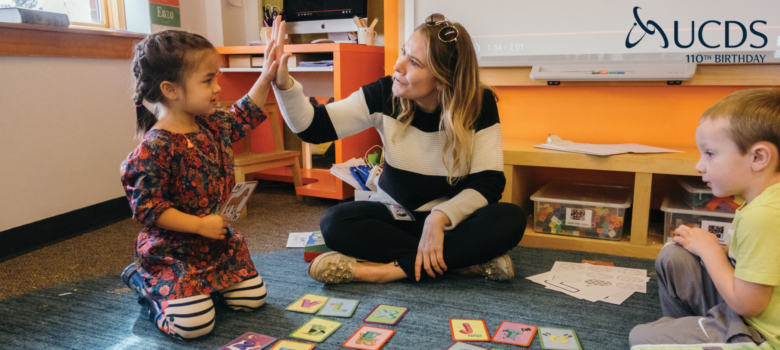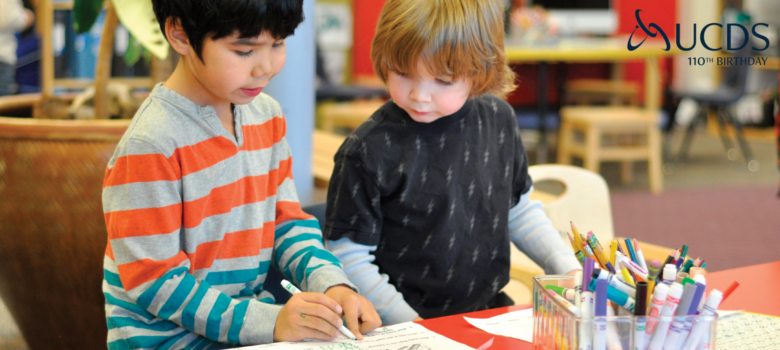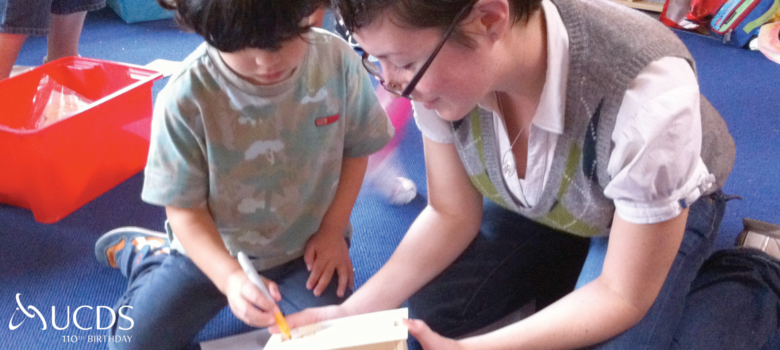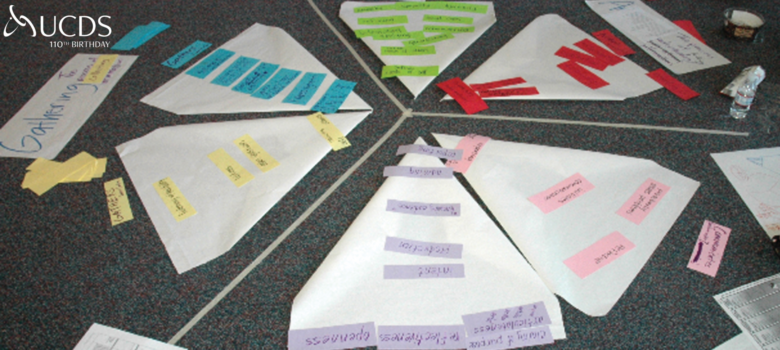by Abby Sandberg, PhD
Spend any amount of time at UCDS and you will undoubtedly hear a lot of laughter and joy. Students light up as they make academic discoveries, giggle with friends at recess, and confidently take ownership of their classroom communities. Observe a little closer, though, and you will also witness children faced with a wide range of less comfortable emotions. As a student, the academic stretches do not always come so easy, leaving you feeling unsure of your abilities. Sometimes loneliness sets in on the playground when it seems that your friends have made choices that do not include you. Other times, the idea you had at Class Meeting is met with dissent and disagreement. Such is the recipe of life. As adults, we clearly understand that life is a mixed bag of emotions, some elating and some discouraging. Throughout our week, we can likely identify multiple occasions when things didn’t go quite as expected and negative emotions set in. When adults are charged with the wellbeing of children, however, we can easily be tempted to shield them from these negative emotions.
At UCDS, we often refer to the saying that it’s our job to prepare the child for the road, not the road for the child. We recognize that equipping a child with the tools to manage setbacks and uncomfortable feelings facilitates healthy social-emotional development. While we certainly do not manufacture situations that will elicit negative emotions in children, we do practice careful timing when intervening as typical frustrations and disappointments arise.
We understand that there are many gifts in uncomfortable emotions. Children who have experience with the typical ups and downs of childhood learn to identify how these emotions usually manifest in themselves, personally. This equips them to sense these feelings mounting, and implement coping strategies to manage them before they become truly overwhelmed. Spending a healthy amount of time experiencing an emotion and processing through it also allows children to notice subtleties in negative emotions. For example, what was initially a wave of anger can be teased apart into frustration or embarrassment. More accurately identifying the root of negative emotions can better equip students to reach satisfying closure to a situation. Experiencing and coping with negative emotions also helps children empathize with others who might be going through similar feelings.
While one of the greatest skills we can teach children is the ability to manage any emotion that comes their way, it may not be the most vital lesson. Perhaps the greatest gift of experiencing and coping with uncomfortable emotions is the belief children find in themselves that they can independently do so. Children who experience challenging emotions learn that these feelings do not usually stick around for too long. They learn they are able to identify them, cope with them, and move on. What a gift to know that emotions such as sadness, anger, and loneliness are typical and that they have the ability to manage them!
As adults, it is important that we practice careful timing when supporting a child who is faced with tricky emotions. Jumping in too early and “fixing” the situation robs the child of the importance experience of processing through something uncomfortable. It also gives children the message that they require adults to generate solutions for them. By walking beside them, narrating their experience, and offering coping tools we can help them face the feeling with independence. As a result, we’ll have children who can navigate roads independently, regardless of how many bumps and obstacles they encounter along the way.





